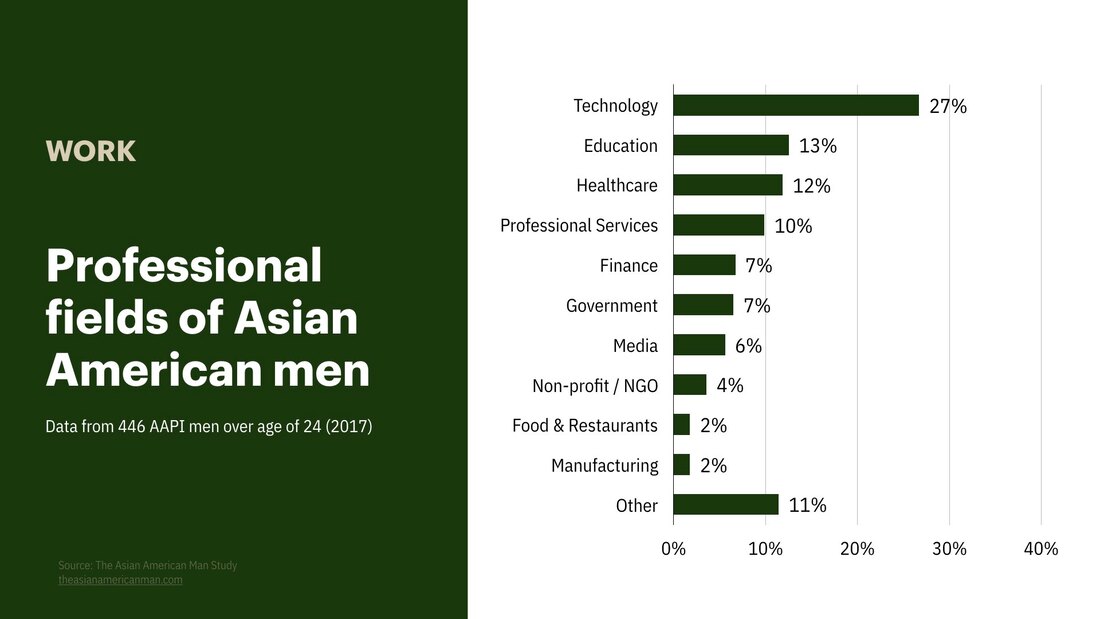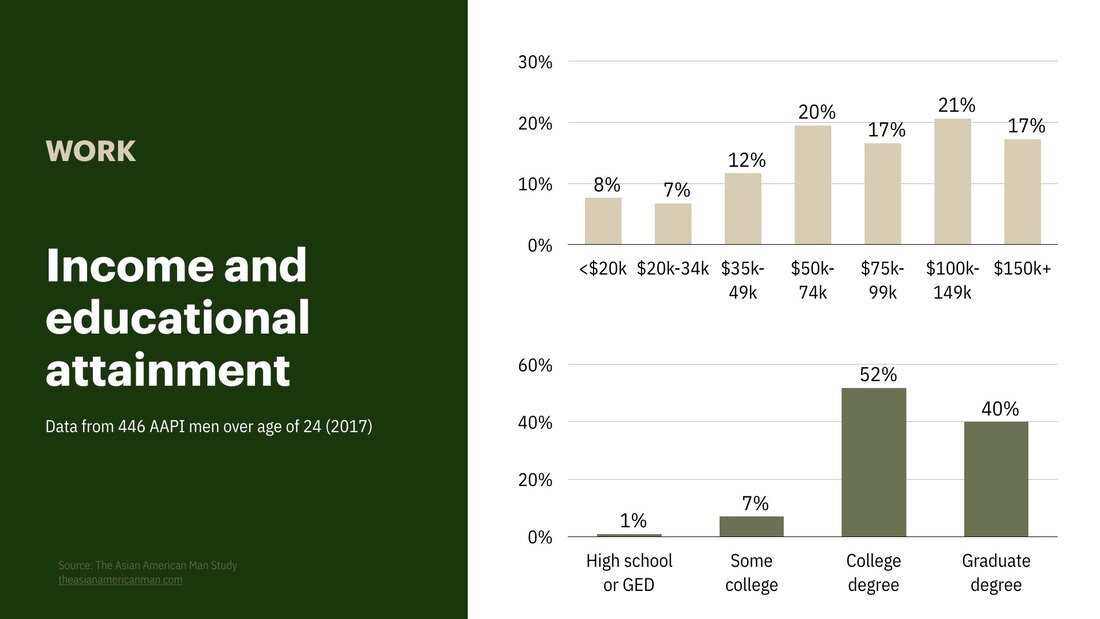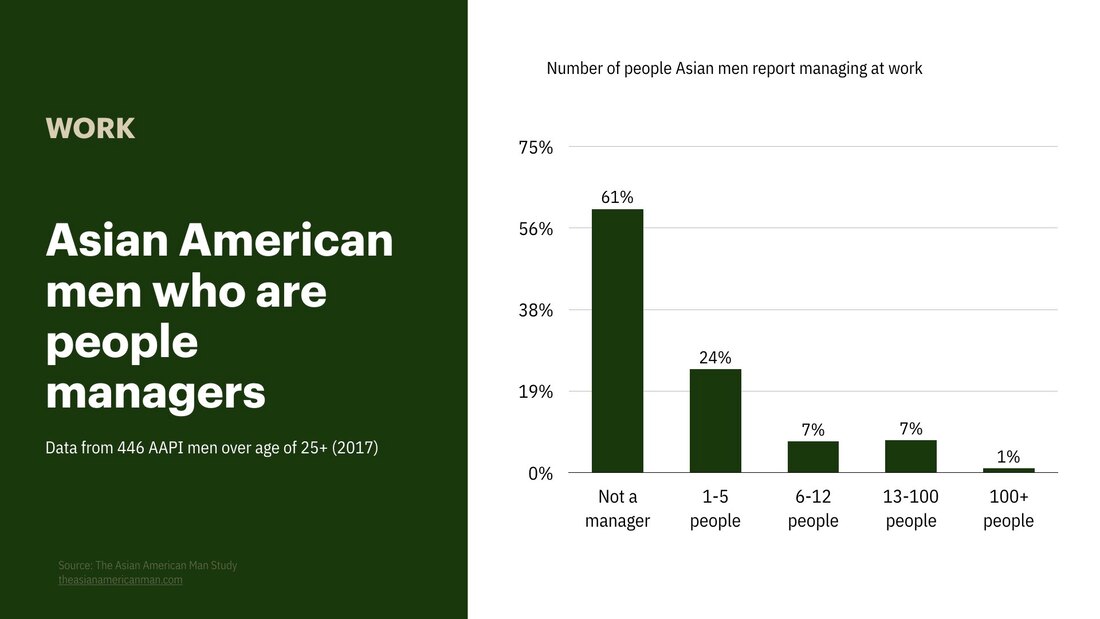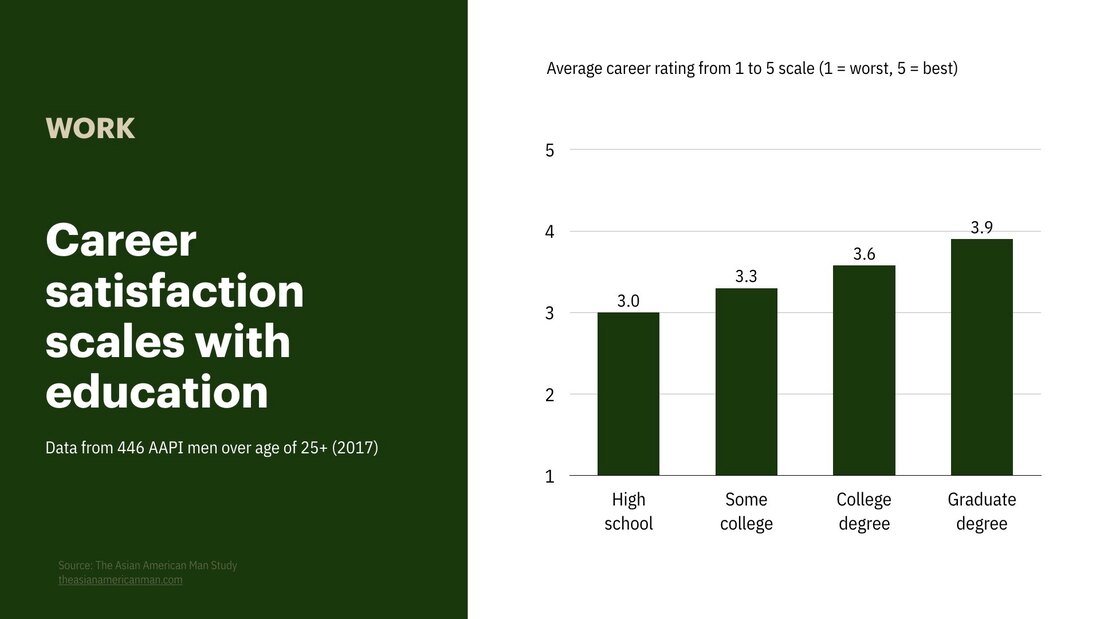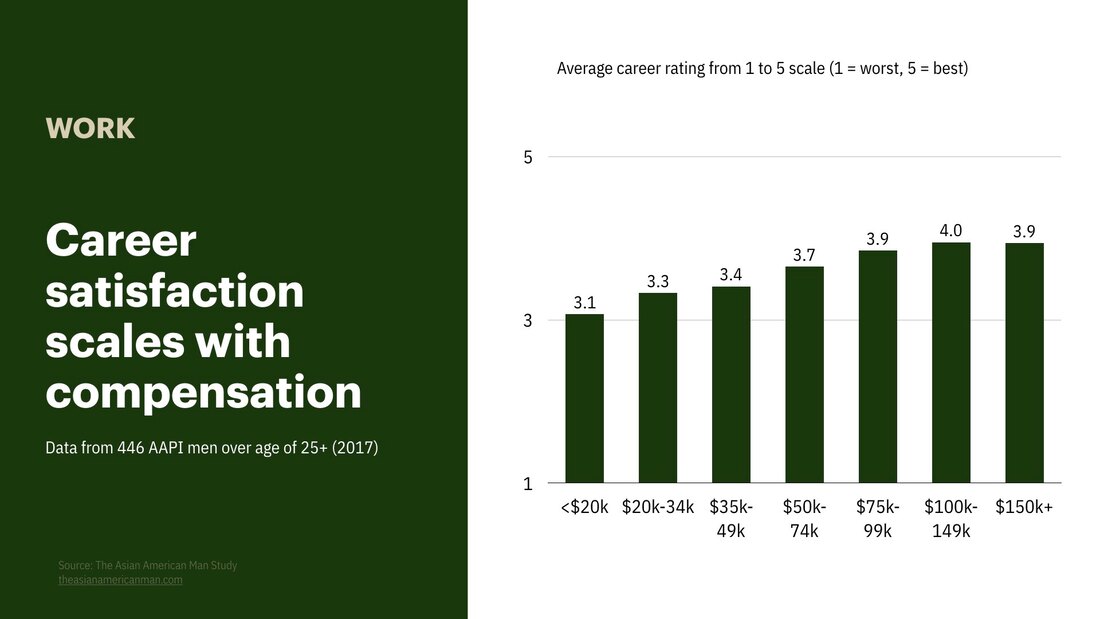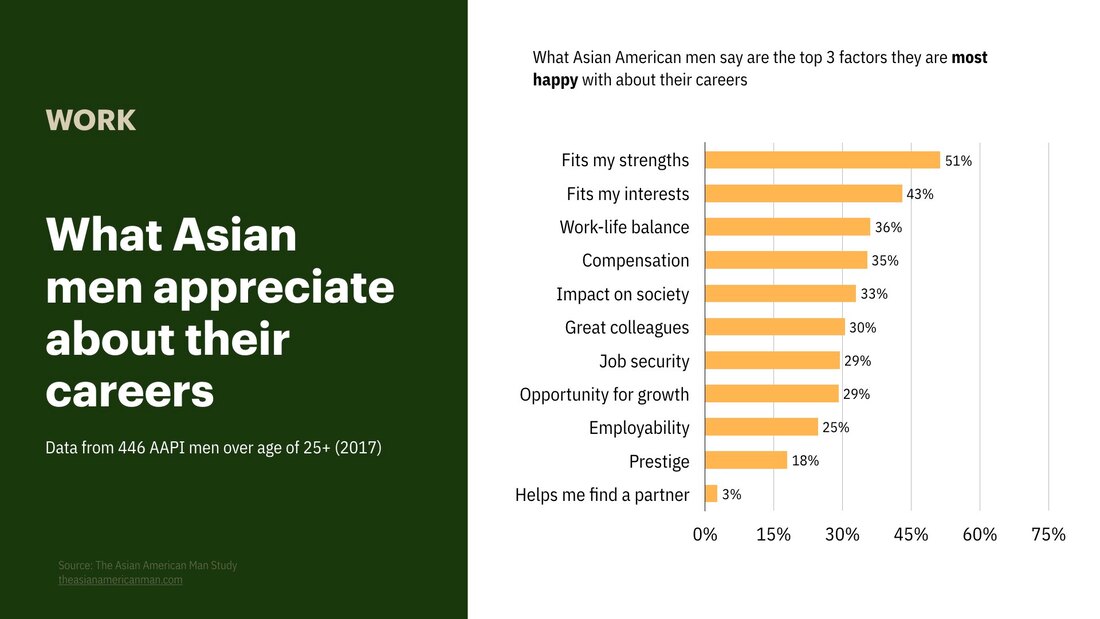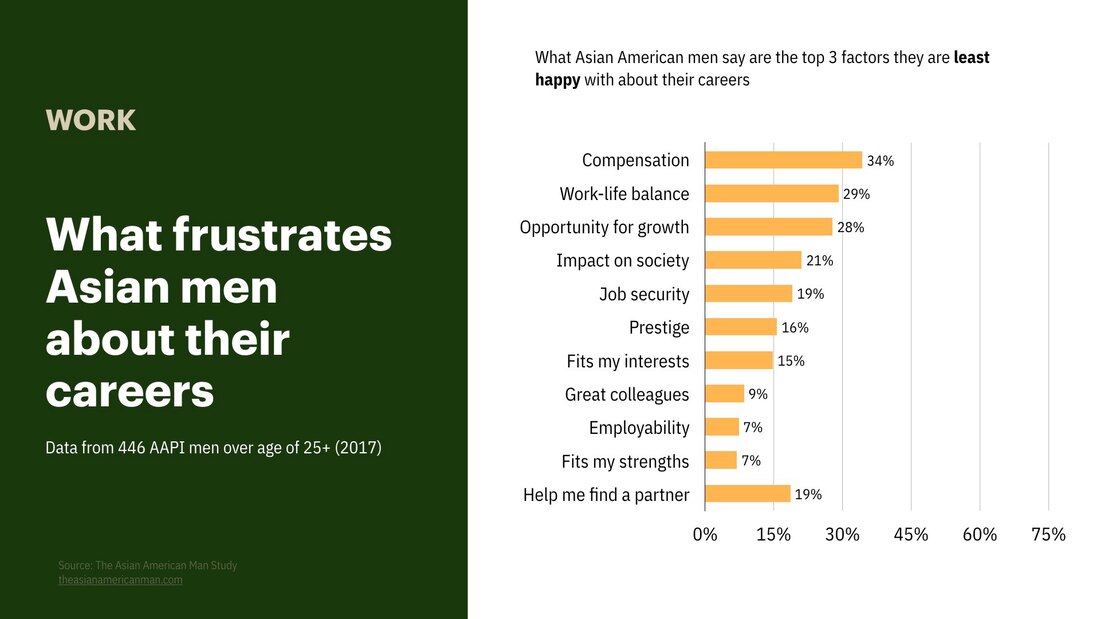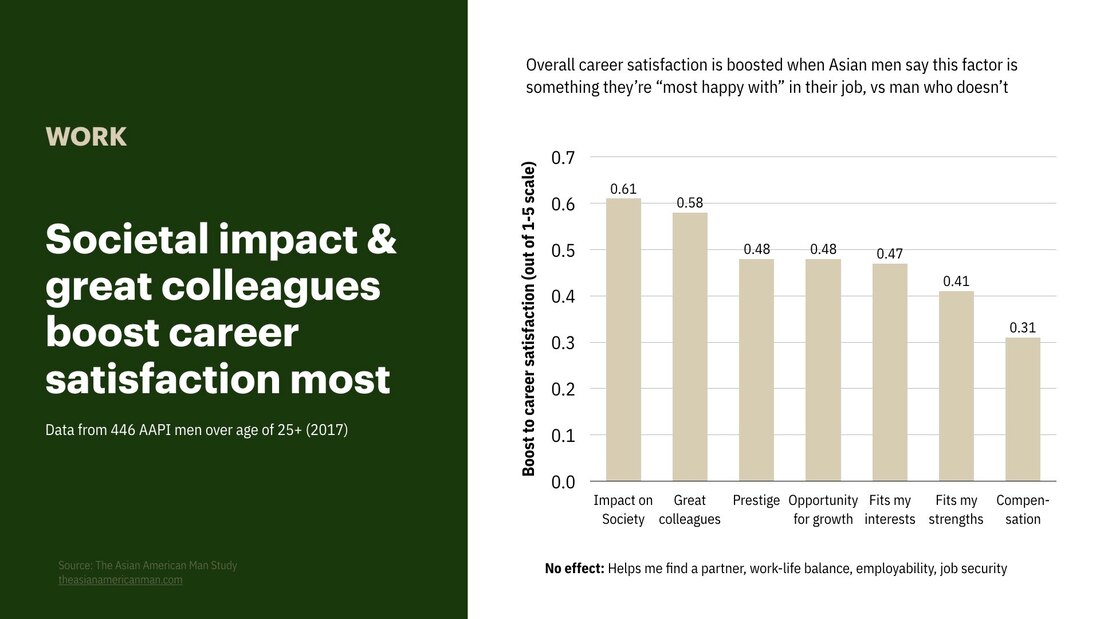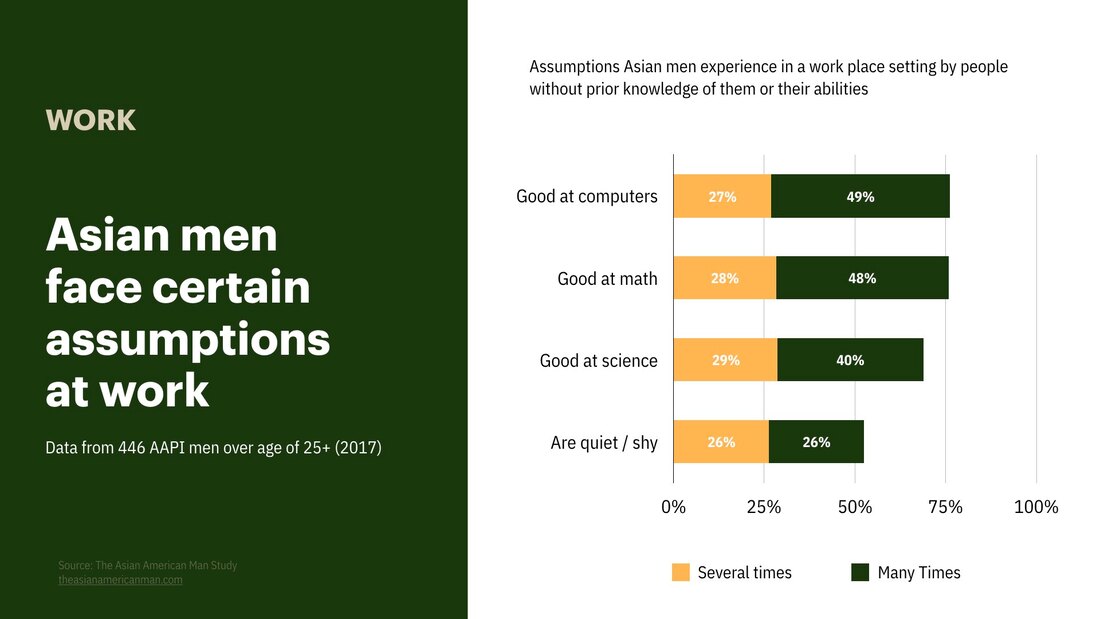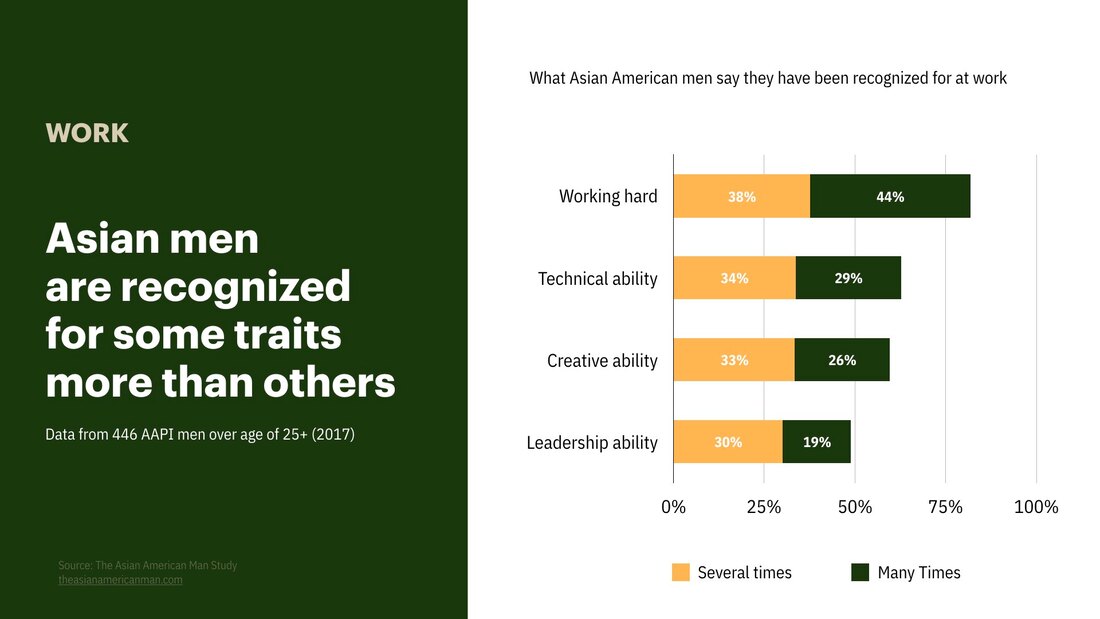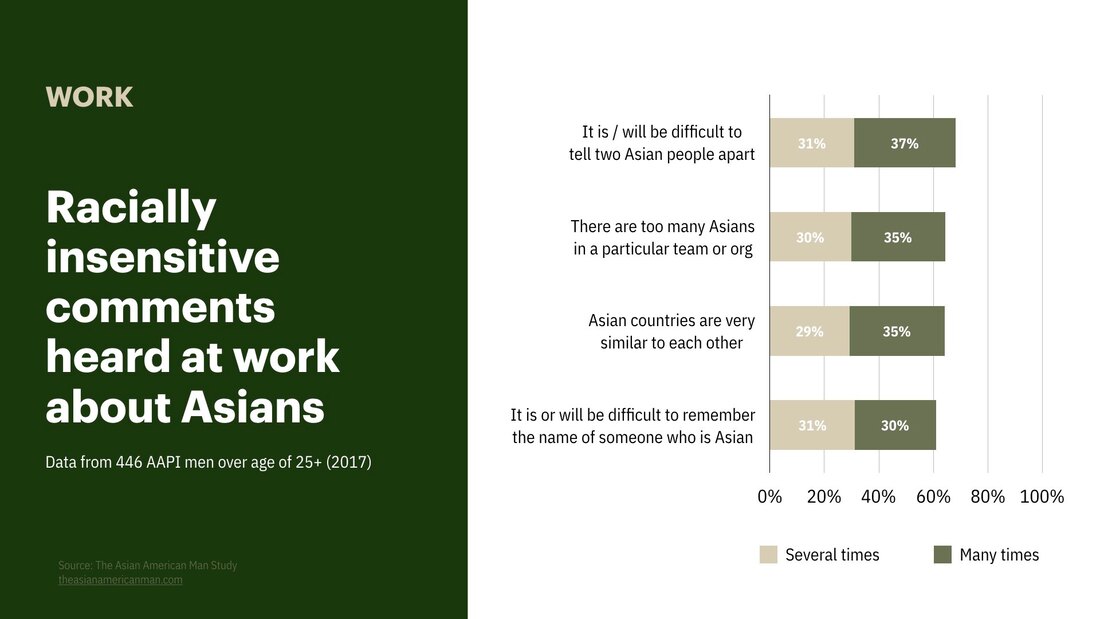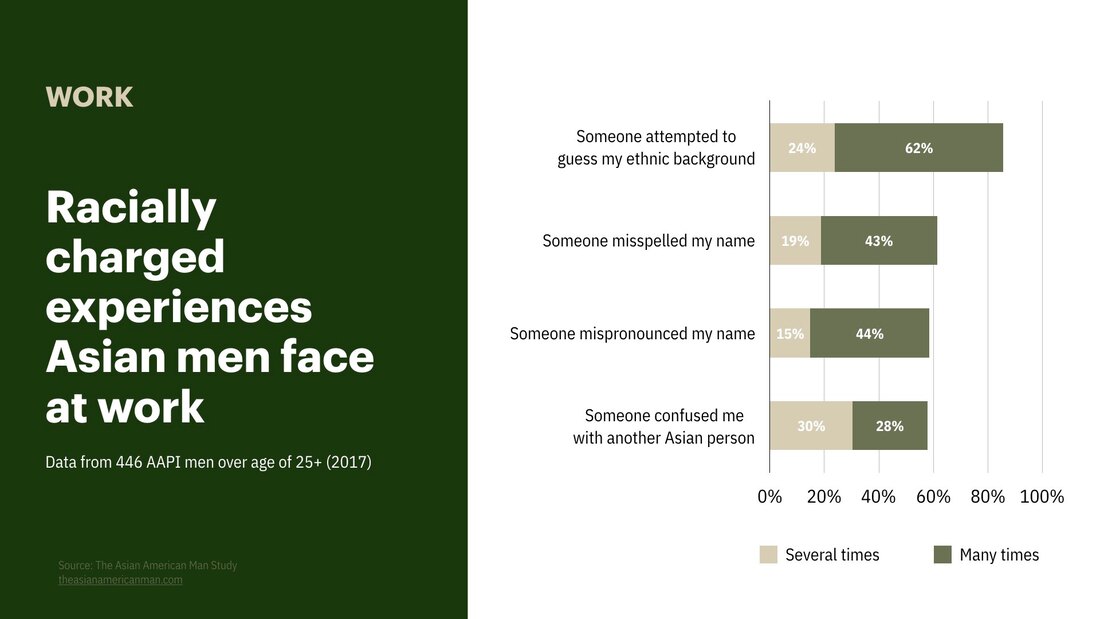Asian men care about their work and careers, and are important contributors to the technology, education, healthcare sectors (among others). In this section, we'll explore career choices Asian American men have made, factors that enhance career satisfaction, and their workplace experiences.
Demographics of Working-Age Asian Men
|
Of the 650+ Asian American men we surveyed in 2017, 446 of them were over 24 years old, and this was the group we considered as we looked at various aspects of their work and career. We recognize that this survey is unable to be nationally representative of Asian men, so we always include demographic information about the men who took our survey and whose responses we are analyzing.
|
|
Career Satisfaction
|
In general, Asian men seemed to be pretty satisfied with their carers. The vast majority of respondents answered between a 3 and a 4 when asked to rate their career satisfaction from 1 (worst) to 5 (best).
|
Education and Income
We found that career satisfaction appears to moderately correlate with educational attainment and income. Both income and education are of course interrelated factors as well. While this may appear to indicate that simply getting a good-paying job for instance is enough to raise career satisfaction, it's more complicated than that. At least part of this phenomenon deals with the fact that more satisfactory jobs require better education and tend to pay more, even if it isn't the pay that drives satisfaction. |
Have questions or want to cover this research?
|
We asked Asian American men what aspects of their career were they most happy about and least happy about. This is a way to think about what respondents like and appreciate about their careers, and what they find frustrating or difficult.
Career satisfaction is a complex issue with many inputs and people value different aspects differently based on personality and where they are in life. With that in mind, here are some things we learned: |
|
|
We did a deeper analysis to look at what factors most enhanced the career satisfaction of Asian men. We did this by comparing the average career satisfaction of Asian men who included a particular career attribute (e.g. Prestige) vs Asian men who did not. What we found was fascinating.
|
|
Race and the Workplace
|
Asian American men are aware that society has certain preconceived notions about them that play out in the workplace. It is often difficult to prove that an experience is due to race, but in aggregate this data can help us see what happens often for Asian men.
|
|
|
Beyond common experiences that can happen in any work environment (recognition, assumptions, etc) we also asked Asian American men about more explicitly racial comments or events that occurred to them or at their workplace. Here's what we found:
|
|

